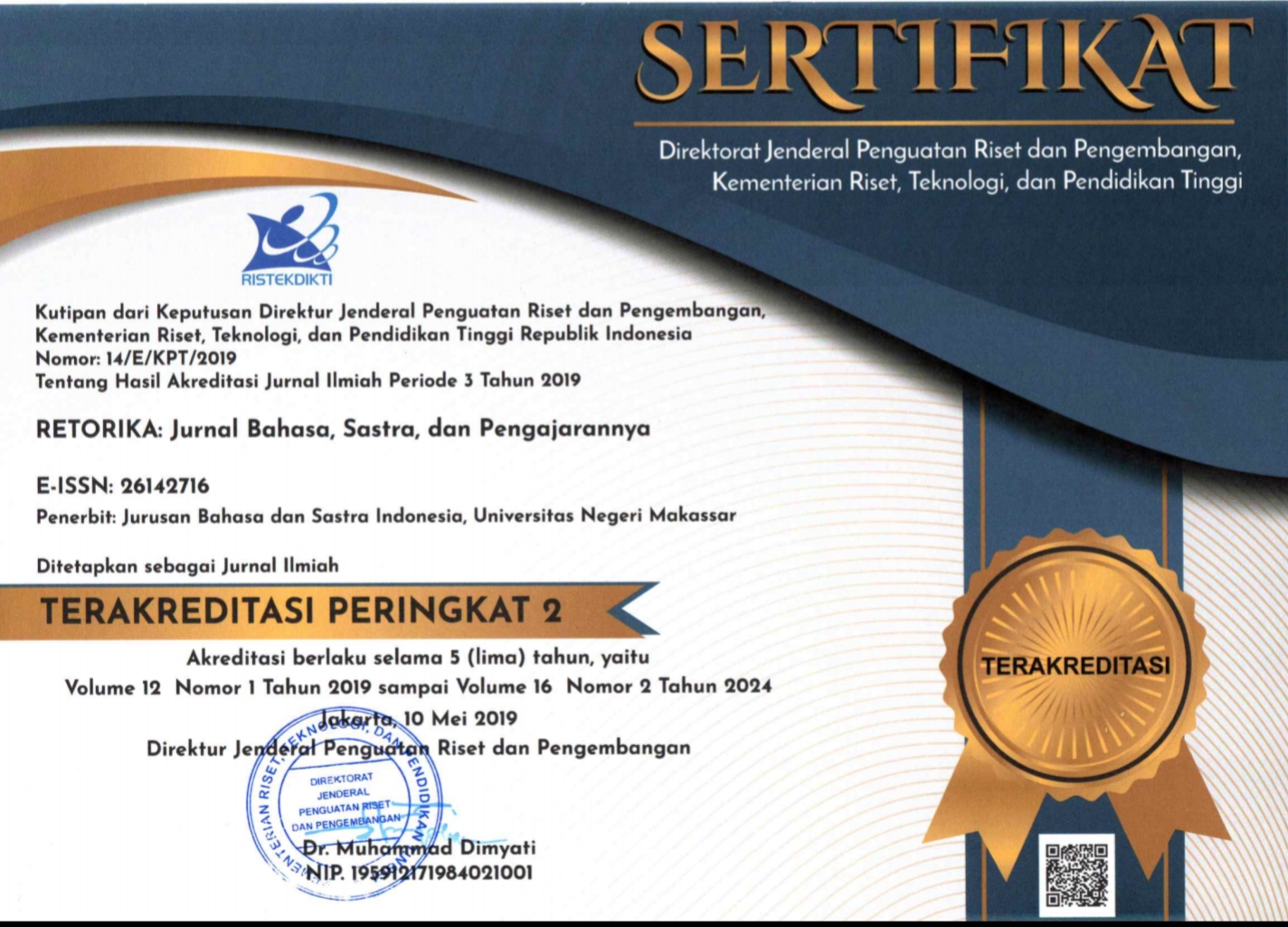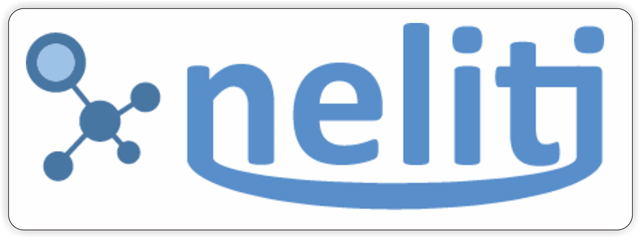DISCOURSE COMPETITION IN THE CLASSROOM: POSTSTRUCTURALISM CRITICAL DISCOURSE ANALYSIS ON STUDENT'S SPEECH DURING DISCUSSION
(1) Universitas Al Muslim, Aceh
(2) Universitas Tadulako, Palu
(3) Universitas Muhammadiyah Makassar
(*) Corresponding Author
DOI: https://doi.org/10.26858/retorika.v14i2.21505
Abstract
Keywords
Full Text:
PDFReferences
Badara, Aris. 2014. Analisis Wacana: Teori, Metode, dan Penerapannya pada Wacana Media. Jakarta: Kencana.
Bakhtin, M. 1981. The Dialogic Imagination: Four Essays. Austin: University of Texas.
Barnes, D., Britton, J. and Rosen, H. 1965. Language, the Learner and the School. Harmondsworth: Penguin.
Baxter, J. 2000. “Teaching Girls to Speak Out: An Investigation of the Extent to Which Gender is a Pertinent Discourse for Describing and Assessing Girls’ and Boys’ Speech in Public Contexts”. PhD thesis, The University of Reading.
Baxter, J. 2002. Competing discourses in the classroom: a Post-structuralist Discourse Analysis of girls’ and boys’ speech in public contexts. London: University of Reading.
Belsey, C. 1980. Critical Practice. London: Methuen.
Darma, Yoce Aliah. 2009. Analisis Wacana Kritis. Bandung: Yrama Widya.
Eriyanto. 2011. Analisis Wacana: pengantar analisis teks media. Yogyakarta: LkiS Printing Cemerlang.
Fairclough, Norman. 1998. Language and Power. London and New York: Logman.
Foucault, Michael. 2002. Power / Knowledge. (diterjemahkan oleh Yudi Santosa). Jogjakarta: Bintang Budaya.
Francis, B. 1998. Power Plays: Children’s Constructions of Gender, Power and Adult Work. Stoke-on-Trent: Trentham Books.
Fairclough, Norman. 1995. Critical Discourse Analysis: The Critical Study of Language. Harlow-Essex: Longman Group Limited.
Miles, M. B. & Huberman, A. M. 1992. Qualitative Data Analysis. Beverly Hills: Sage Publications. Terjemahan Tjetjep Rohendi Rohidi. 2014. Analisis Data Kualitatif. Jakarta: Universitas Indonesia.
Santoso, Anang. 2012. Studi Bahasa Kritis: Menguak Bahasa Membongkar Kuasa. Bandung: Mandar Maju.
Syahrin, A. 2018. Culture Repertoire in Expressive Written Language : Study of Hypothesis of Edward Sapir and Benyamin Lee Whorf. Budapest International Research in Linguistics and Education (BirLE) Journal. Vol.1, No 1, Page: 25-30, 2018.
Swann, J. and Graddol, D. 1988. “Gender Inequalities in Classroom Talk”. English in Education 22: 48–65.
Walkerdine, V. 1990. Schoolgirl Fictions. London: Verso.
Wetherell, M. 1998. Positioning and Interpretative Repertoires: Conversation Analysis and Post-structuralism in Dialogue. Discourse & Society 9: 387–412.
https://www.youtube.com/watch?v=JcKGy7JG5zQ di akses, 01 Desember 2020.
Article Metrics
Abstract view : 286 times | PDF view : 74 timesRefbacks
- There are currently no refbacks.
Copyright (c) 2022 Dr. Alfi Syahrin, M. Pd.

This work is licensed under a Creative Commons Attribution-NonCommercial 4.0 International License.
Published by:
Department of Indonesian Language, Faculty of Languages and Literature, Universitas Negeri Makassar in cooperate with Asosiasi Dosen Bahasa dan Sastra Indonesia (ADOBSI) and Ikatan Program Studi Pendidikan Bahasa dan Sastra Indonesia (IKAPROBSI).
Address: Department of Indonesian Language Office, DG Building Second Floor, UNM Parangtambung, Daeng Tata Raya Street, Makassar, South Sulawesi, Indonesia
 Email: retorika@unm.ac.id
Email: retorika@unm.ac.id

RETORIKA: Jurnal Bahasa, Sastra,dan Pengajarannya is licensed under a Creative Commons Attribution-NonCommercial 4.0 International License.
















